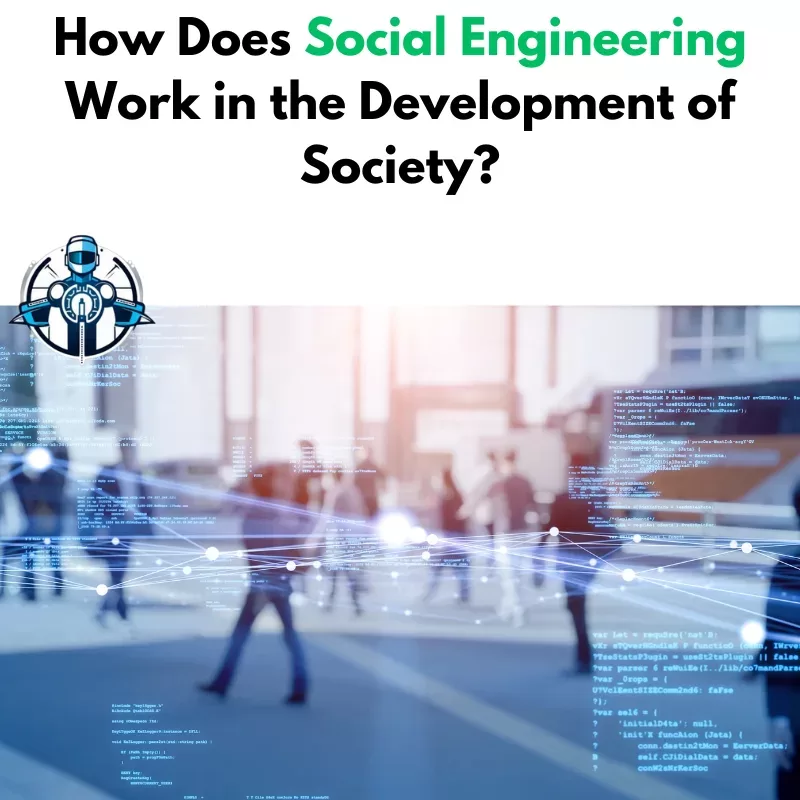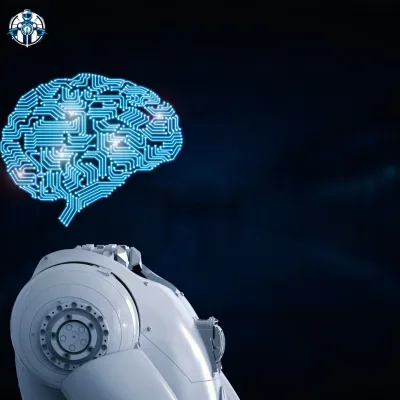Social engineering modifies people’s behavior and attitude. It assists in the accomplishment of definite objectives. This concept has been in existence in the past. It has a significant effect on societies. In this blog post, I will explain how social engineering takes place in society development, and the ways it functions on different levels including the effects it yields on communities present.
Listen to Our Podcast on Social Engineering and Society Development:
The Role of Social Engineering in Building Communities
Social engineering contributes immensely to the formation of building communities. A community is a group of individuals with a similar purpose, value, or passion they hold or work in the same business. Social engineering creates and strengthens bonds between them in the following manners.
First, it affects the values and beliefs of societies. Social engineering can either modify or strengthen these norms.
Second, it calls for people to participate. Government and organizations engage individuals for the purpose of encouraging them to participate in community developmental activities.
Thirdly, it fosters the establishment of shared values. Making use of the mass media, education, and other cultural promoters, social engineering inflates values that integrate mankind.
Learn more about the mechanics of social engineering by visiting our detailed guide What is Social Engineering and How Does It Work?
The Social Engineering in politics and government
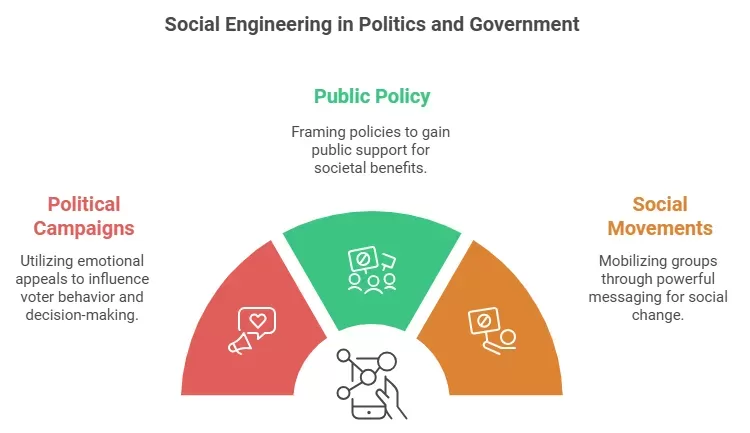
We can see this practice in several areas:
1. Political Campaigns:
Examples of social engineering are used by political parties trying to frame issues. They advance these problems in ways that are appealing to the public emotions as well as concerns. For example, using fear appeals is a good way to convince people and to get a vote.
2. Public Policy and Social Programs:
A social engineer uses social engineering to put policies and programs that would benefit society. People want to come together to support policies to be implemented hence leaders can influence them by framing them in a certain way. In this way, they obtain support for the changes necessary for society, for example in the spheres of health, education, or ways for welfare.
3. Social Movements:
Social engineering also helps in mobilization for protest and otherwise formation of groups. That means by giving powerful messages in an organized manner, leaders can mobilize people to fight for what they believe in, for instance, civil rights, environmental conservation, or women’s rights.
Discover social engineering’s impact on cybersecurity by reading What is Social Engineering in Cybersecurity?
The Positive Use of Social Engineering
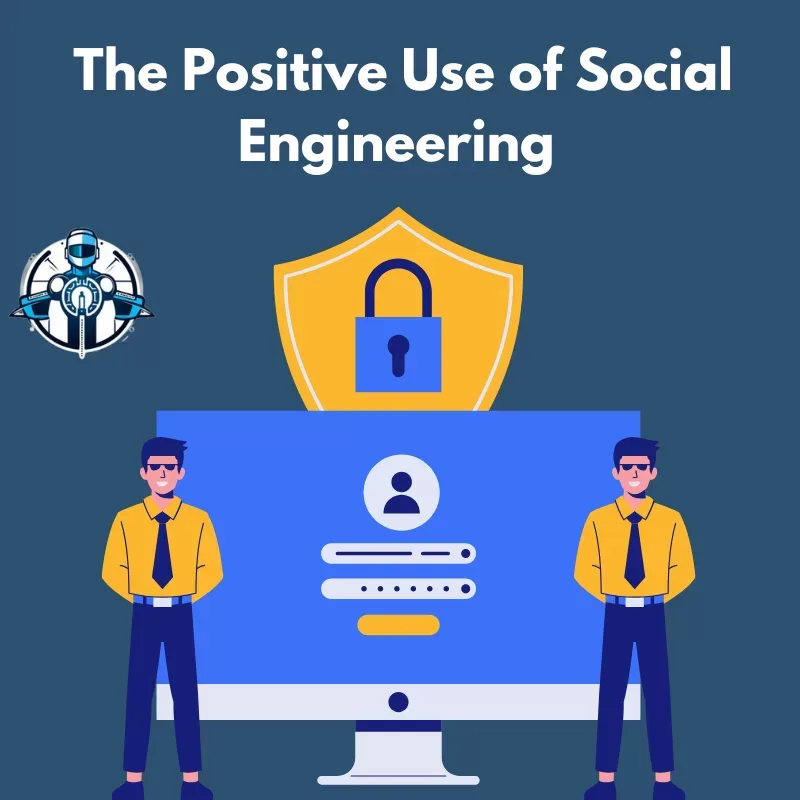
Social engineering is not necessarily negative, or always about manipulation at that. This is true as it can promote the achievement of positive goals of society. Here are some examples:
· Public Health Campaigns:
It is common when governments and certain organizations appeal to people with the help of social engineering to change their behavioral patterns for the better. For example, campaigns tell people to stop smoking, get physically active, or consume certain types of foods. Instead, they employ social engineering to change direction and perception among members of society.
· Environmental Advocacy:
Some other people and organizations employ social engineering in an effort to advocate environmental causes such as climate change. They persuade individuals to live sustainable lifestyles. So, when social engineers pose an environmental issue within the lens of immediacy, people are provoked to act.
· Education and Awareness:
In fact, social engineering can be useful in getting people educated as well as making them think critically. For instance, campaigns can be towards reading, learning a new skill, or participating in an activity within the society. These initiatives use social engineering ways of getting the populace to participate.
Protect yourself from phishing attacks—read What is Phishing and How Do I Prevent It? for more information
Ethical Factors in Social Engineering
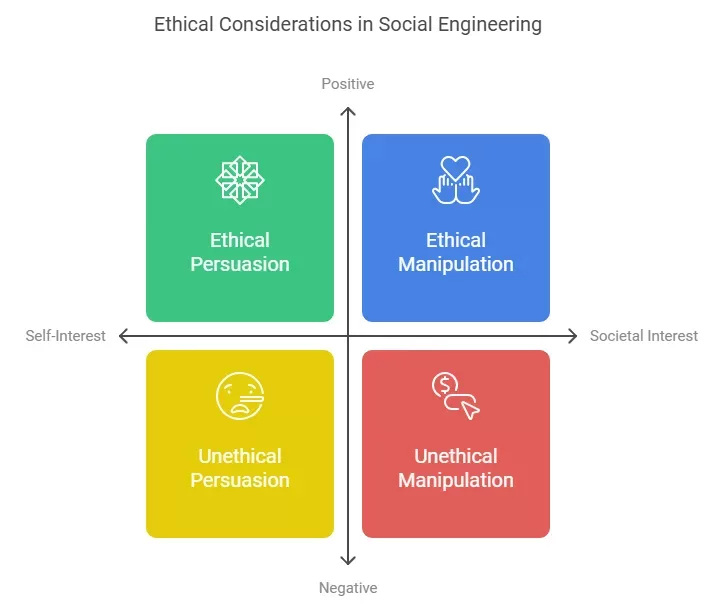
There are consequences of using social engineering and they are both pros and cons. It is therefore relevant to be familiar with the ethical issues. All these factors are very essential when using social engineering in the society.
· Manipulation vs. Persuasion:
The main ethical challenge, it is hard to draw the line between persuasion and manipulation. Persuasion influences someone into doing something in his self-interest or in the interest of the society. Conversely, manipulation involves strategies that are with an intent to influence people mischievously or get an upper hand over them.
Understand the importance of social engineering for secure email practices in Importance of Social Engineering in Email Security
· Trust and Transparency:
Ethical social engineering requires trust and transparency of the people involved. It discredits when people feel used or deceived in a particular way. This breakdown is not good for social relations and societal development in general.
Consent:
Professional social engineering activity takes into account rights of the individuals. They try to make sure that decision is made by the particular individual. Compulsion or forcing actions is regarded as infringement of personal freedom and professionalism norms.
Learn how social media can be exploited by reading How Hackers Use Social Media for Social Engineering Attacks.
The Influence of Technology on Social Engineering
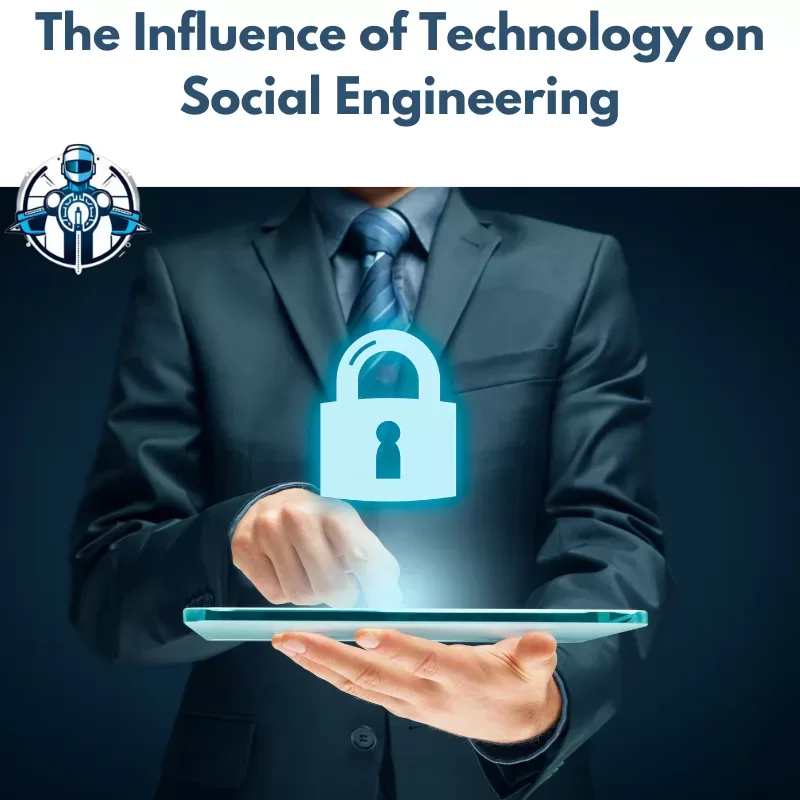
Technology has become a powerful tool for social engineering, especially today. The rise of social media, online communities, and digital platforms magnifies social engineering’s effects. Here are some ways technology influences social engineering in modern society:
- – Social Media Campaigns: Platforms like Facebook, Twitter, and Instagram shape public opinion. They create viral movements and influence behaviors. Political campaigns heavily rely on social media for outreach. Advertisers also use social media to sway consumer behaviors.
- – Fake News and Misinformation: Misinformation online is another harmful aspect of social engineering. Social media spreads fake news, conspiracy theories, and manipulated information. This influences people’s beliefs and actions negatively.
- – Online Manipulation: Hackers and cybercriminals exploit individuals using social engineering. For example, phishing attacks trick people into revealing sensitive information. Scammers use manipulative tactics to steal money or identities.
Discover more about social engineering’s influence on social work by exploring What is Social Engineering in Social Work?
FAQs
What is an example of social engineering in sociology?
An example of social engineering in sociology is using public campaigns to change societal behaviors. Promoting gender equality through media and education programs is a clear instance.
How does social engineering influence social change?
Social engineering drives social change by encouraging new behaviors. It alters public opinions and promotes social norms through strategic campaigns and messaging.
What are the ethical concerns related to social engineering?
Ethical concerns arise when manipulation or coercion violates individual autonomy. Such actions can compromise trust for personal or political gain.
Final Words
Social engineering greatly influences society. It shapes behaviors, builds communities, and promotes social change. While it can lead to positive outcomes, like public health campaigns or environmental advocacy, it also raises ethical concerns when used manipulatively.

